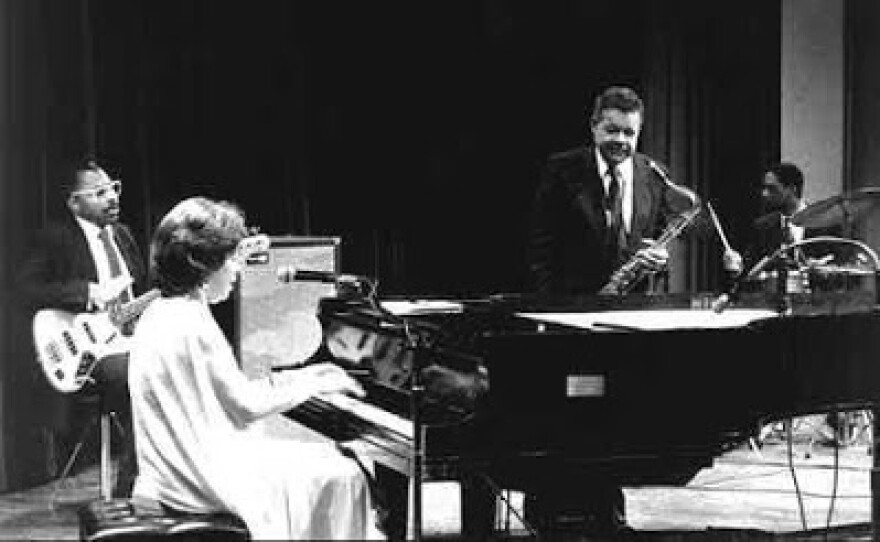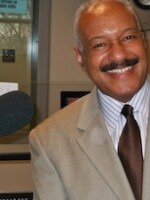Shirley Horn, vocalist and accomplished jazz and classical pianist, was nominated for nine Grammy awards during her performing career.
She won the Grammy for Best Jazz Vocal Performance at the 41st Grammy Awards for her album “I Remember Miles,” a tribute to her longtime friend and mentor. She was also awarded the National Endowment of The Arts Jazz masters award in 2005 and an honorary Doctorate from Berkley School of Music in 2002.
Horn has recorded well over twenty albums as a leader. She became well established as a challenging swinger of a pianist, even though her unique performing claim to fame was her special approach to performing ballads sometimes at an almost tempo-less slow and probing pace. After hearing her perform, Miles Davis once asked, “how can you play so slow?” Miles Davis can be heard on several of his recorded works incorporating that same tempo-less style including his recording of “I Fall in Love Too Easily” and others.
Shirley Horn was born in Washington, DC. She was influenced by her grandmother, who was a self-taught organist. Horn began taking piano lessons herself at the age of four years old eventually graduated from Howard University with a degree in Classical Performance.
Having already been influenced by such greats as Erroll Garner, Oscar Peterson, and Ahamd Jamal, Horn began performing with her own trio around Washington DC’s U street Jazz corridor at the age of 20 years old. She lived her life in and around family in Washington DC, but over the decades she enjoyed an ever expanding club and concert hall performing schedule.
Horn recorded her first album “Embers and Ashes” which was not widely heard in 1960. But, Miles Davis heard it and aggressively searched until he was able to obtain her phone number in DC. He invited her and her trio to open for him at The Village Vanguard in New York. That was the needed exposure that got her a record deal with Mercury Records. From 1963 to 1978 she recorded only two albums, preferring to stay in the Baltimore/Washington area with family as she raised her daughter Rainy with her husband Shepard Deering.
Horn maintained the same supporting sidemen in her trio for almost her entire performing career. Bassist Charles Ables performed with Horn for over 30 years, and drummer Steve Williams for over 25 years. The three together became a seamless, empathetic performing ensemble that met subtlety followed her every tempo-less twist and turns. They were the absolute combined performing perfectionists bring every possible nuance and emotion out of every chosen song.
After the exposure with Miles Davis, Horn recorded on several different record labels the included Impulse, ABC Paramount, Steeplechase and others. Her popularity increased with the critics but she not achieve a large amount of popular success. Quincy Jones attempted to make her solely as vocalist (without Shirley Horn accompanying herself on piano) a mistake he later admitted.
In 1982 Shirley Horn played her first New York performance in over 15 years at Michaels Pub and by 1986 she was signed to Verve records, the company that slowly but surely began to re-build her career over the course of 11 new albums. One of those albums included “You Won’t Forget Me,” with cameo appearances from both Miles Davis and Wynton Marsalis. Another was the Grammy award-winning album “I Remember Miles”. Other albums featured fellow DC saxophone legend Buck Hill. Shirley Horn recorded a “live” album with Roy Hargrove, but only a few tracks were released (the others did not meet her standards for some un-documented reason).
Horn had been battling breast cancer for a while when she also had to have her foot amputated due to complications from diabetes. Her performing schedule was greatly reduced and for a while she was unable to accompany herself on piano until she was fitted with a prosthetic device that helped her reach and use the piano sustain pedal again. Her final performance at New York’s “Le Jazz Au Bar’ was released on Verves Anthology: “But Beautiful, The Best of Shirley Horn.
Shirley Horn passed away in a nursing home in Cheverly, Md. At the age of 71.









